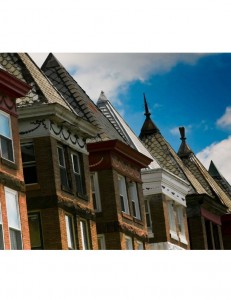The District needs to stretch its affordable housing dollars as far as possible, especially because it costs a lot for each home the District subsidizes to make it affordable. But a new bill before the DC Council would go in the opposite direction, by allowing some residents who buy a home with city help to sell it at full market price just five years later. While intended to support homeownership in distressed DC neighborhoods, the bill would weaken the ability to preserve affordable housing in the long term.
There are other approaches that preserve affordable housing for much longer terms while still allowing owners to get equity from their home’s rising value. That is a better direction for DC. 
Under current law, homes sold to low-and moderate-income residents with subsidies from the Housing Production Trust Fund must remain affordable for at least 15 years, which means an owner who wants to sell must do so at a price that is affordable to another low- or moderate-income family. The new bill would reduce that to five years for homes in many parts of the District. If the owner sells after five years, they could sell to any buyer at any price, while repaying the city subsidy.
Why would this be a problem? Because even with the initial subsidy repaid after five years, the amount of subsidy needed to create a new affordable unit is likely to grow over time, as construction costs rise and as market values rise. In addition, if a home in a given neighborhood that is affordable becomes unaffordable as resale restrictions end, it will likely be much harder to find another unit to make affordable within the same neighborhood.
The proposed bill also raises concerns because it would apply the five-year rules to some parts of neighborhoods such as Columbia Heights, Bloomingdale, and Navy Yard. The bill applies to neighborhoods it defines as “distressed” ‘ meaning it has a poverty rate of 20 percent or more. Yet nearly 40 percent of the city’s census tracts meet that definition, including many of DC’s gentrifying neighborhoods. The bill would make it hard to preserve affordable homeownership opportunities in many of the city’s rapidly changing neighborhoods.
The bill also runs counter to local practices ‘ like in Montgomery County ‘ where most homes bought with government help must remain affordable for 30 years. In fact, Montgomery County created longer periods of affordability after finding that it had lost nearly two-thirds of the affordable units it had subsidized with just a five-year affordability restriction. And it runs counter to a successful national model called “˜shared equity’ which strikes a balance between preserving low-cost housing through resale rules while also allowing for wealth creation through home equity. Brett Theodus from the Urban Institute has found that shared equity helps families move to homeownership while preserving affordable housing better than the bill’s proposed methods.
Helping residents become homeowners throughout the city is a good goal, but with limited public resources, the District needs to keep in mind not only the people that want to buy a home today, but those that want the opportunity to buy in the future.
